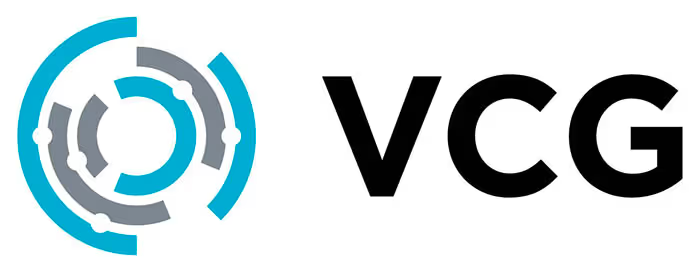
What’s better for your incident workflow?
Choosing the right incident‑response or IT‑service platform directly affects uptime, customer trust, and team morale. This page breaks down the core differences between ilert – the AI‑first incident‑management platform – and Jira Service Management – Atlassian’s ITSM suite. We focus on what matters to SRE, DevOps, and IT‑Ops teams. With Atlassian moving Opsgenie customers toward JSM as a migration option, many teams are reassessing their incident management stack.

ilert is trusted by companies like










































































A few words on use cases
Before we compare the two solutions feature by feature, it’s important to note that Jira Service Management (JSM) and ilert have different roots and were designed for different use cases.
ilert began as an incident management platform for always‑on services. It focuses on the end‑to‑end incident response lifecycle: alerting, on‑call scheduling, advanced call routing, incident communication via status pages and structured postmortems, which is why it’s a strong fit for DevOps/SRE teams, MSPs, IoT operations, and security response.
JSM grew out of ITSM and internal service desks. Its strengths are request fulfillment, change and asset management, end-customer technical support, and HR and facilities workflows, making it a better fit for enterprise IT and shared services. While JSM has been enriched with incident management capabilities from Opsgenie, its foundation remains ITSM workflows, which are often overkill for fast‑paced engineering teams that ship frequently, embrace change, and need to fix issues quickly.
What sets ilert apart from JSM?
Let’s take a closer look at what really sets an end-to-end incident response platform apart from an ITSM solution with integrated incident-related features.
Different goals – different pricing models
ilert keeps pricing simple: the incident response essentials, like ChatOps, integrations with monitoring and observability tools, postmortems, status pages, voice/SMS, and API access – are incorporated in every plan, including free. In JSM, pricing is built around ITSM, and many incident‑focused capabilities sit behind Premium or Enterprise tiers or additional apps, which raises the total cost. If you're already using JSM within your company or have other use cases beyond incident response, Jira Service Management would be the more suitable choice. But if you are searching to lower MTTA and MTTR, stay on top of SLAs and are already using another ITSM solution (like Freshservice, HaloITSM, TOPdesk, etc.), ilert is a better option.
ilert has a very strong focus on keeping things as simple as possible without sacrificing flexibility. For example, ilert offers a flexible scheduling solution that lets you create rotation-based recurring schedules, and static schedules with a calendar like UI.


AI-features
Searching for intelligent automations to respond to alerts faster? ilert’s AI sits on every stage of the incident lifecycle. The basic AI features are available even on the Free Plan. In JSM, “Atlassian Intelligence” focuses first on service‑desk productivity and is only available in Premium and Enterprise plans.
Hotlines to triage high volumes of calls
In DevOps and IT Operations, hotlines are often internal lifelines for teams managing critical infrastructure. An intelligent, comprehensive, and flexible call flow ensures incidents are immediately routed to the engineer with the right expertise (network, database, application layer), even across different time zones and organizations. Call routing is also critical for the MSP reality, where hotlines must triage high volumes of calls, route them to the right on‑call engineer across multiple customers, and keep each audience informed without oversharing.
ilert has a visual Call flow builder that lets you design IVR menus, PIN checks, voicemail, support‑hours branches, and much more in minutes – and even greet callers with an AI Voice Agent that can capture context and open or escalate an incident automatically. In JSM, incoming call routing is a Premium/Enterprise add‑on with a more limited, form‑based setup, which makes complex MSP flows harder to maintain.

Isolated vs. Integrated status pages
Are you looking for a tool to communicate system health to your audience? ilert provides all types of status pages natively integrated into your incident management platform. With JSM, you typically rely on the Atlassian Statuspage solution (previously known as statuspage.io), which is a separate product that requires additional operational and budgetary resources. Moreover, ilert status pages are also significantly cheaper. Audience-specific pages in the Atlassian ecosystem start from around $300, whereas ilert status pages start at €50–62.50, depending on the plan.
In case you manage incidents for more than one organization
When managing incidents for multiple organizations – common in MSP, DevOps outsourcing, or multi-tenant IT Operations environments – keeping alerts, incidents, and escalations strictly separated is essential for clarity, speed, and compliance. ilert achieves this through a flexible structure of teams, alert sources, and granular permissions, ensuring that each customer’s data, notifications, and workflows remain fully isolated. This prevents noisy or misrouted alerts from one tenant affecting others, safeguards sensitive information, and helps meet contractual or regulatory requirements such as GDPR or ISO 27001.
In contrast, Jira Service Management typically models customers via separate projects or “sites,” which can lead to siloed configurations, duplicated workflows, and higher administrative overhead as the number of customers scales. For MSPs or IT Ops teams with dozens of active clients, this difference can mean the gap between a smooth, centralized on-call strategy and a fragmented, hard-to-maintain setup.

ilert vs. JSM at a glance















